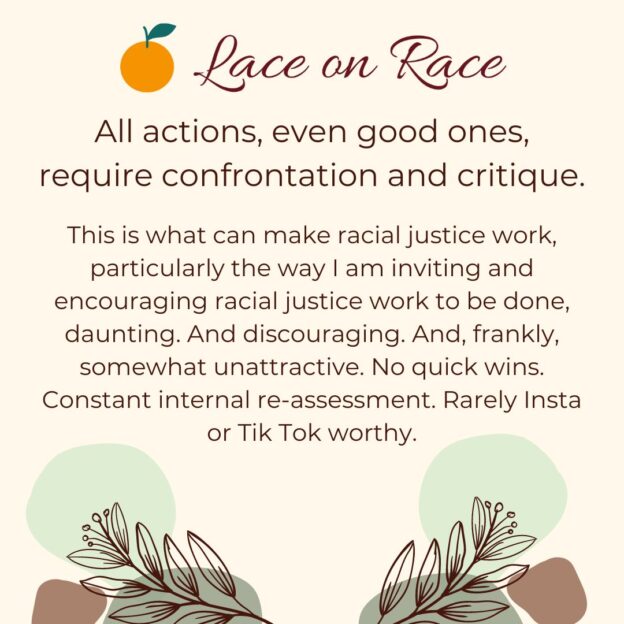“Working Out The Terms Of Moral Justification Is An Unending Task”
Dr. T. M. Scanlon, “What We Owe to Each Other”
In the months, years really, of my talking about applied relational ethics, contractualism, and moral philosophy with you all here in this community, it comes down to the above quote.
Our choices, married to our internal, fuel our individual and collective overarching way in which we–also individually and collectively–move in and relate to the world. It is not only what we do, but the reasons why we do it (and the process by which we arrive at the reasons) that matter.
Those choices connect, and sometimes (oftimes) collide with the choices of others–even when those choices appear to be, on their faces, similar.
This is why I often say that it matters less what we do than how and why we do it, and also, crucially, who we are as we do it. This means that we need to work out, in an explicit way, who we are before we embark on action.
The above needs to be an intentional process, but it does not mean that it needs to be a particularly protracted one. In fact, done well and practiced with discipline and rigor, it can be done in less time than one thinks–or hopes.
People doubt that part. Some of the ‘fun’ of agonizing over the best and the good can often come from the stance, advanced by common culture, that there has to be an element of pain in considering the best and the good, and that pain is considered to be some kind of reward, so that we live with some dissonance–that it has to feel ‘bad’ or at least mildly excruciating, for any given action–that unless there is a grimace involved, an overt, sweat inducing effort, to be truly good. You must ‘earn your burn’.
By contrast what the world covertly seems to say is that doing bad feels superficially good, and takes no great effort, but leads to belly cramps.
Neither is quite right–not least because there are very few singular and unambiguous or un-ambivalent actions, as we have seen in our discussions of conscious consumerism. Bad actors can do good things–Walmart is one of the leaders in reducing paper waste in the supply chain–and good actors can take actions which can lead to harmful consequences. And this: even though we often feel that we are acting strictly solo, we never truly are. Each action–and the interior dynamics which drive action (and inaction, because that’s another action; fodder for another discussion) is made in the context of a broader community. This is true, however unacknowledged.
And it’s never ending. Actions are never singular–even if it feels that way. We change. The world changes. What was once considered progressive can now seem reactionary. Principles we once considered non negotiable and inviolate demand revisiting. My same act–serving at homeless outreach, for example, has different reasons and justifications and consequences each time I do it. It feels like repetition, but it’s only so if I allow it to be, and allow my action to become rote. All actions, even good ones, require confrontation and critique.
This is what can make racial justice work, particularly the way I am inviting and encouraging racial justice work to be done, daunting. And discouraging. And, frankly, somewhat unattractive. No quick wins. Constant internal re-assessment. Rarely Insta or Tik Tok worthy.
I realize that. I realize that the way racial justice work has been ‘sold’ over the last decades is in direct contrast to what I assert. Yes, the conventional wisdom speaks to ‘community’–but like most things wrested from the original thought, intention, and conviction, it is a distorted sort of community–not so much people speaking with one disciplined and faithful and reliable voice in vocal and public support of a unified principle, but rather a collection of–crucially–*individuals* each of whom reserve the right to only mouth the words, or clamp their jaws, or take fingers crossed behind their backs at the parts they disagree with in general, or for which they demand (overtly, but most often covertly) carve outs and dispensations.
Here at LoR, one of our core collective (in the true sense of the word) agreements in this group of companions is that racial justice work must be done with both rigor and deliberateness–and that it must not be done alone.
It’s been almost five years. I can make some confident assertions about LoR.
The more one is willing to lean into the group and allow themselves to lean on community, the deeper and more durable changes that are made. The more they say ‘we’, even as they say ‘I’ (healthy personalization) the more it is internalized. The more they take small risks inside of the vessel that is LoR–wrestling, commenting, responding– the more action, with courage and consistency, is taken outside.
There is ‘rote’ as a sort of synonym of/for the mindless. And then there is what we advocate and do our best to live out here–the reflective reflexive–this is what happens with enough practice, both internally and externally. It’s what I meant above when I said that doing the best and the good need not be either painful nor protracted. Congruence is a satisfying brew.
Reading about the work, and watching the work, is not, and cannot be, the same as doing the work, no matter what our mirror neurons might say. Lace up.
____________________
The LoR Center for Racial Equity (commonly known as ‘Lace on Race’) is nonprofit and almost exclusively community funded. Tangible engagement from readers and viewers enable us to provide a space that is ‘free-ish’ for the discussion and application of ideas, principles, and praxis. Please join us in this effort – become a Sustaining Companion today by clicking the links on the website and Facebook Page. Our deepest thanks.

2 responses to “The Weekly Invitation to Fullest Engagement”